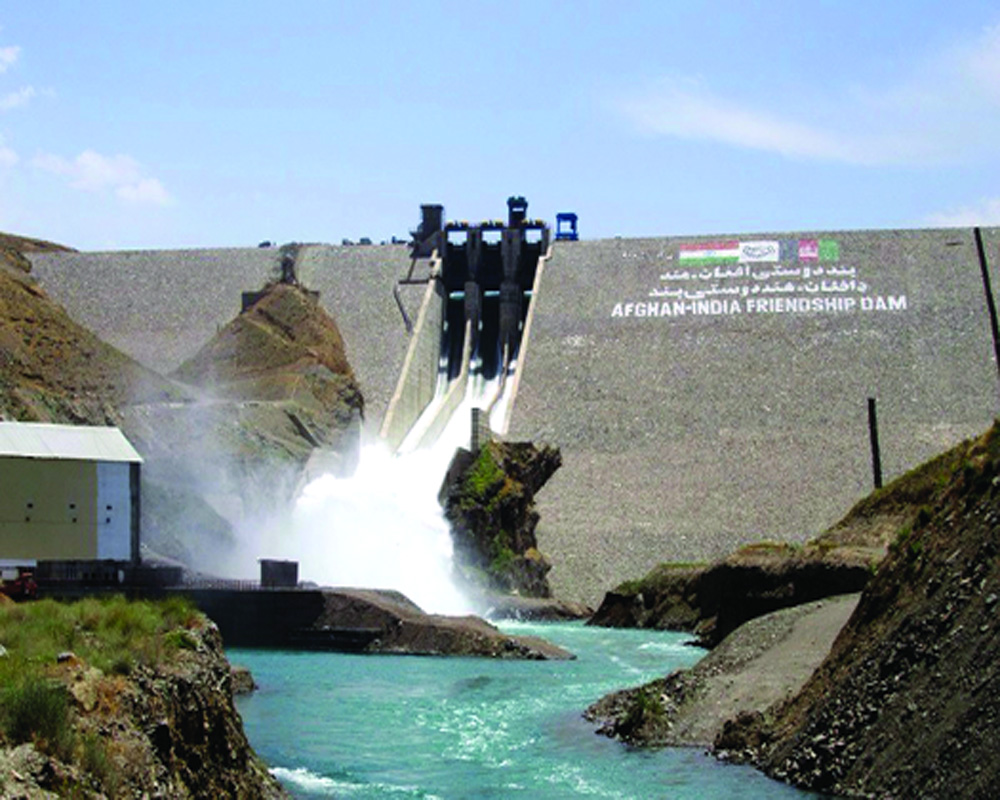The Taliban’s return to power and Pakistan’s enduring influence have created a multifaceted challenge for India
The evolving relationship between India and Afghanistan presents a multifaceted diplomatic challenge. India’s engagement with Afghanistan, particularly after the Taliban’s return to power, is closely linked to its broader strategic interests in the region, especially its rivalry with Pakistan.
The Taliban’s close ties with Pakistan and its association with terrorism pose a serious security threat, making India’s diplomatic engagement a complex but necessary endeavor. While seeking to safeguard its regional influence and counter Pakistan’s dominance in Afghanistan, India must carefully navigate the Taliban’s authoritarian rule, human rights concerns, and the risk of further destabilizing the region.
India’s Diplomatic and Developmental Footprint
India’s involvement with Afghanistan extends beyond diplomatic posturing and is driven by long-term strategic and developmental goals. Through substantial investments in infrastructure, education, and humanitarian aid, India has positioned itself as an important partner to Afghanistan. Projects such as the construction of the Afghan Parliament, the Salma Dam, and educational scholarships for Afghan students have significantly enhanced Afghanistan’s infrastructure while fostering goodwill between the two nations. India’s developmental efforts have had a direct positive impact on Afghanistan’s stability and growth, providing a counterbalance to Pakistan’s attempts to exert control over Afghan affairs.Strengthening ties with Afghanistan offers India significant strategic benefits, including access to Central Asia.
By bypassing Pakistan, India secures a direct route to Central Asia’s markets and resources, reducing Pakistan’s monopoly over Afghanistan’s trade routes. This economic advantage is coupled with enhanced counterterrorism cooperation, as both nations share concerns about the proliferation of extremist groups.
This collaboration not only bolsters India’s position as a responsible regional power but also contributes to regional stability.
Pakistan’s Strategic Setback:
India’s strengthened relationship with Afghanistan poses a significant challenge to Pakistan’s strategic objectives. Historically, Pakistan has viewed Afghanistan as a strategic depth, crucial for its security and regional influence. Any shift in Afghanistan’s alliances toward India directly undermines this narrative.
The development of an India-Afghanistan trade corridor, particularly through Iran’s Chabahar Port, bypasses Pakistan entirely, diminishing its leverage over Afghanistan’s trade routes. This economic shift erodes Pakistan’s ability to influence Afghan policy, further isolating it in the region. Security concerns compound Pakistan’s challenges. The increasing Indian presence in Afghanistan is perceived as a potential avenue for intelligence-gathering and support for nationalist movements within Pakistan, particularly in its Pashtun and Baloch regions.
The Taliban’s Role:
Despite Pakistan’s close ties with the Taliban, India’s diplomatic engagement with Afghanistan has the potential to empower elements within the country that resist Pakistan’s control. This could shift power dynamics within the Taliban or exacerbate internal divisions.
The Taliban’s governance and its approach to extremism remain critical factors in shaping the future of India-Afghanistan relations. India’s diplomatic strategy hinges on the Taliban’s willingness to adopt inclusive governance and curb extremism, which could open avenues for constructive engagement.
Regional Stability
Regional stability remains precarious as tensions between India and Pakistan persist, coupled with the Taliban’s uncertain governance. Proxy conflicts could spill over into Afghanistan, exacerbating instability.
The Road Ahead:
India’s long-standing commitment to Afghanistan’s reconstruction, particularly through investments in infrastructure and humanitarian aid, has been central to its regional strategy. India has invested over $3 billion in Afghanistan, supporting projects such as the Zaranj-Delaram Highway, the Afghan Parliament building, and the Salma Dam. These initiatives have directly contributed to Afghanistan’s economic and social development. Other contributions include power transmission lines, healthcare programs, educational scholarships, and food aid, reflecting India’s commitment to Afghanistan’s well-being and stability.The Taliban’s return to power in 2021 cast uncertainty over the future of these projects. Despite the political upheaval, India has maintained a humanitarian approach, continuing to provide support where possible. However, the Taliban’s restrictive policies and authoritarian rule complicate the these initiatives. India’s cautious engagement seeks to balance its strategic interests with the need to uphold humanitarian values.
(Writer is a senior political analyst and strategic affairs columnist; views are personal)


























